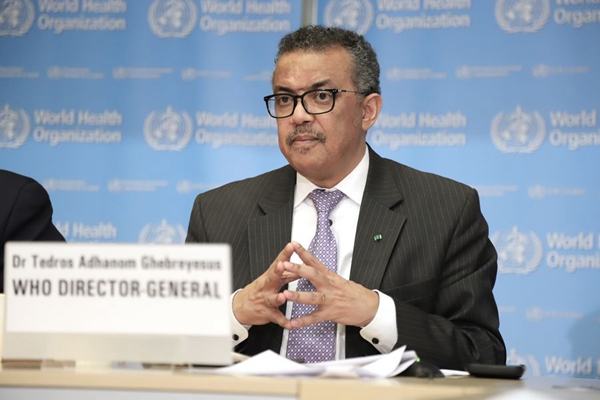Despite pandemic threats, UN should intensify its role in global governance
- By Wu Jin
 0 Comment(s)
0 Comment(s) Print
Print E-mail China.org.cn, September 10, 2020
E-mail China.org.cn, September 10, 2020

Nearly seven-and-a-half decades since the end of the Second World War (1939-1945), the United Nations remains committed to building a peaceful and cooperative international community, even though the public health emergency and political disputes pose pressing challenges.
To better illustrate the UN's irreplaceable role in world affairs, Chen Junxia, a veteran media person familiar with UN affairs, shared this view drawn from his first-hand experiences in Geneva.
"Despite the impact of the COVID-19 pandemic, which has changed the world in all aspects and given rise to an anti-globalization mentality, the UN remains the most trustworthy and reliable organization to protect people's fundamental interests by steering the world out of this crisis in efficient ways," Chen said.
On Aug. 24, Tedros Adhanom Ghebreyesus, director-general of World Health Organization (WHO), announced at a press conference that 172 countries and regions were collaborating under the leadership of the Coalition for Epidemic Preparedness Innovations (CEPI), Gavi -- a global Vaccine Alliance and the WHO to accelerate the search for an effective vaccine to contain the global spread of the virulent pathogen.
"Led by the WHO, the public health division of the UN, the world can better understand what to do together rather than dealing with the pandemic separately," Chen said.
Thinking beyond the interests of any single country, the WHO alone is capable of taking comprehensive measures to cope with challenges facing the entire globe during the pandemic. It will, on one hand, prevent the disease from further spreading; on the other hand, ensure the world can return to normal living standards, he explained.
Recently, Ren Minghui, the assistant director-general for Communicable Diseases at the WHO, urged a quick recovery of global trade, because, he worried that without sufficient cargoes amid the pandemic, famine may soon sweep the African continent, where the people seldom store food.
Additional divisions in the UN, such as, the Refugee Agency, the Food and Agriculture Organization and the International Children's Emergency Fund (UNICEF) have also provided timely humanitarian, medical and educational aids to the hardest-hit regions since the outbreaks of the pandemic.
"The WHO has taken painstaking efforts in every possible aspect to prevent the social disruptions caused by the pandemic from prevailing," Chen said, noting that the around-the-clock online working style has enabled the organization to respond promptly as usual.
However, no matter how hard the UN tries to contain further infections, its implementations are often challenged by hegemonic interventions that can, in turn, affect the authority and efficacy of the international organization, Chen added.
On June 6, the United States notified the UN that it had decided to withdraw from the WHO, so that its duties and rights entitlements in regard to this organization will expire a year later.
A few days ahead of the announcement, the WHO refused to hold China accountable for the pandemic. The UN Secretary-General Antonio Guterres and Ghebreyesus have reiterated that the pandemic should not be politicized to aggravate an already uncertain situation.
Witnessing the UN's endeavor in maintaining world peace and stability in this particularly eventful year, Chen said, despite its limited power for some reasons, the all-out efforts taken by the organization deserved respect.
"Had it not been for its incomplete functions, the UN should have been an administration responsible for full-fledged global governance and performed more excellently while combating with the pandemic," Chen continued.
"However, regardless of its incapability, it remains a place where reasons from different voices can be proposed and discussed."
Prior to UN, the League of Nations (1920-1946) was ratified in line with the "Treaty of Versailles" signed after the World War I. However, the league proved short-lived and was nullified as it failed to prevent another global conflict, one of the most destructive and devastating wars in human history, during which hundreds of millions of lives were lost and countless communities were reduced to ruins.
Learning from its predecessor, the UN should fortify its role in today's international community where the unilateralism may lead the world to a precarious future, Chen suggested.
"The essential solution to today's conundrum lies in multilateralism, from which the level playing field can be provided not within individual countries only, but also the entire international community," he stressed.






Go to Forum >>0 Comment(s)